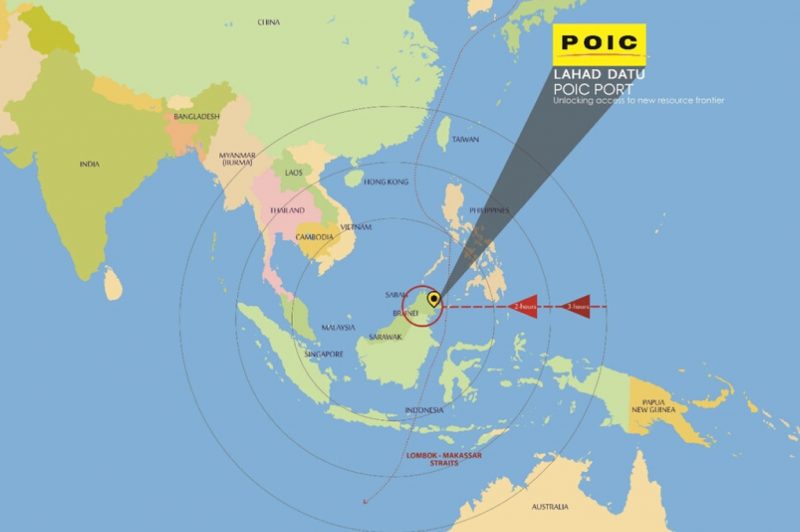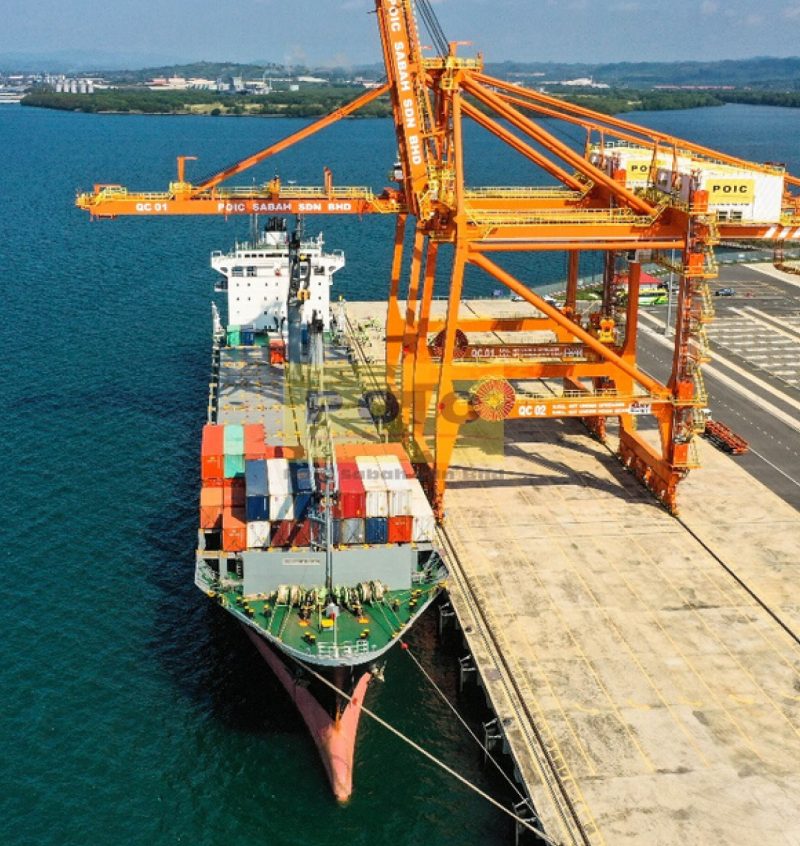MIDA Insights – Services

This site
is mobile
responsive
The Palm Oil Industrial Cluster (POIC) Lahad Datu was established by the Sabah State Government in 2005 to spearhead the development of palm oilbased downstream activities. Through the provision of adequate physical infrastructure and policies, POIC serves as a catalyst to accelerate the growth of the palm oil industry in the region. Presently, Sabah is the largest oil palm T producing state in Malaysia, tapping on 1.55 million hectares of its plantation to supply oil palm raw materials for valueadding manufacturing. Apart from palm oil, the Lahad Datu POIC comprises other industrial clusters such as port and logistics, oil and gas, biorefineries and small and medium enterprises. Strategically located along the Lombok-Makassar Straits, POIC is well known for its deep seaport with 20-meter depth.
Corresponding to the completion of the container terminal in 2018, POIC becomes a full-fledged port aiming to be the “Rotterdam of the East” through the emerging of the new industrial port city. The terminal is equipped with the first ship-to-shore cranes in East Cost Sabah and able to accommodate Panamax vessel up to 65,000 deadweight tonnage (DWT). The intrigue features completed the look of POIC’s terminal in becoming the first integrated port infrastructure with specific terminals for barge landing, liquid, dry bulk and container cargoes in Sabah.

On 4 September 2019, the terminal celebrated a significant milestone through the first docking of container vessel 17224 DWT, MV Danum 172. Owned by Shin Yang Shipping Corporation (SYSCorp), the ship brought in nine 40ft containers of cocoa shells and took out nine 20ft containers of fertiliser. This remarkable event augurs well with Sabah’s bid to generate more outgoing cargoes. In the past, containers were going out empty, and this has resulted in higher shipping costs for Sabah. The first call was also significant to POIC as an endorsement from a primary shipper like SYS Corp in confirming that the port has connected the dots in shipping and logistics required for industrialisation in Sabah.
The container terminal will also help Sabah in escalating the process of industrial take-off by having more investments in high-value export-oriented downstream products. It opens up the opportunities of being connected with the resourcerich regions such as Southern Philippines, Kalimantan, Sulawesi, Papua New Guinea and the Northern Territory of Australia. These regions are well known as global suppliers of palm oil, cocoa, rubber, timber and minerals, including coal and petroleum. Resources from these countries can be secured and consolidated at POIC for further value-added processes before being exported, especially to resource-deficit developed economies such as China, Japan, Korea, Taiwan and Hong Kong.

The geographical centrality of POIC in East Asia yields tremendous advantages for the harbour to be a logistics hub; handling bulk cargo and transhipment for the region. The Lahad Datu POIC can leverage on the growth of global shipping via the Lombok-Makassar Straits, giving rise to massive opportunities in bunkering and ship-related businesses, unlocking potentials for the maritime sector in Sabah – emulating the Straits of Malacca. Lombok-Makassar Straits, which is much safer, as it is relatively wide and deep, provides an excellent alternative to the Straits of Malacca. Industrialisation is an important agenda of the Sabah government. As the principal investment promotion agency, MIDA assists to promote POIC as one of the potential sites for local and foreign investments. Moving forward, MIDA will continue to intensify its collaboration with the Sabah government to attract more investments that will broaden the state’s economy via value adding its natural resources.
Download MIDA Newsletter October 2019